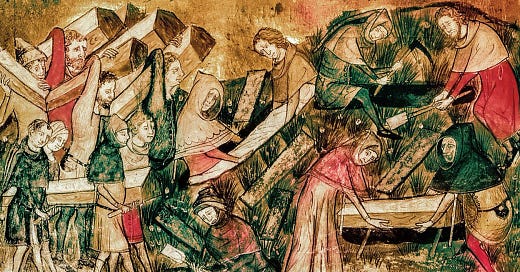Did the Black Death Shape the Human Genome? New Study Casts Doubt
Unraveling the Genetic Legacy of the Black Death: A Debate in Genomic Studies
The devastating Black Death of 1349, while taking a significant toll on medieval Cambridge, might not have left a lasting imprint on the genomes of its people, as suggested by a recent study published in Science Advances1. This challenges a high-profile 2022 Nature paper2 that claimed variants in immune genes enriched in Black Death survivors had a protec…
Keep reading with a 7-day free trial
Subscribe to Anthropology.net to keep reading this post and get 7 days of free access to the full post archives.


